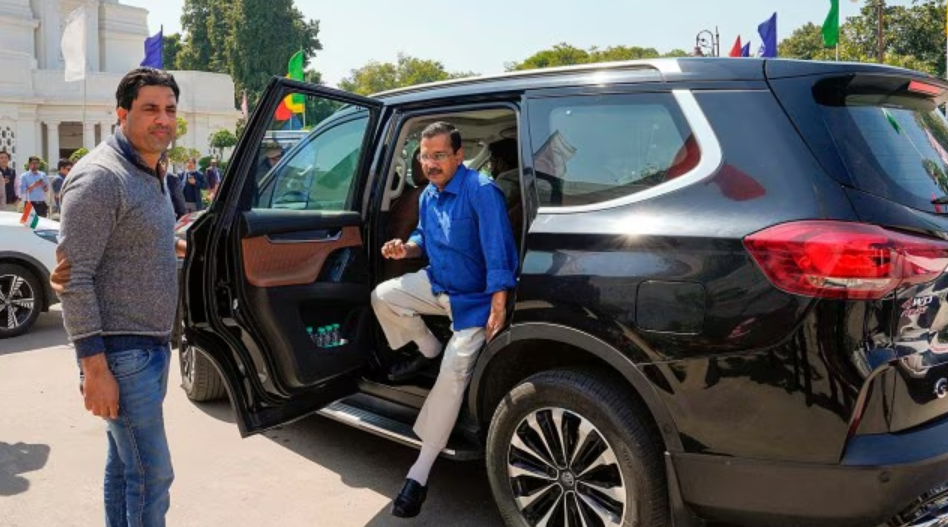In an unfolding narrative that has captured the attention of the nation, Delhi Chief Minister Arvind Kejriwal marked his physical presence in a courtroom at the Rouse Avenue Court in New Delhi this past Saturday. This appearance was in relation to the ongoing Enforcement Directorate (ED) summons case, a saga that has seen multiple twists and turns, with accusations of political vendetta and legal wrangling.

For the first time since the inception of the case, Kejriwal stood before the court in person, a departure from his previous virtual appearance. The court session culminated with the granting of bail to Kejriwal, a move that has sparked varied reactions from different political quarters.
The Backdrop
The ED has been persistent in its approach, lodging two complaints against Kejriwal for alleged non-compliance with their summonses. These summonses are part of the probe into the controversial Delhi excise policy case. The agency is keen to record Kejriwal’s statement on several fronts, including policy formulation, pre-finalization meetings, and accusations of bribery.
Kejriwal’s stance has been firm; he maintains that the summonses are not only illegal but also a product of political motivations designed to tarnish his image and that of his party. Despite this, he has now chosen to face the legal music, adhering to the summons and presenting himself before the court.
The Legal Proceedings
During the court session, Kejriwal was directed to furnish a personal bond and a surety bond, each valued at ₹50,000. Upon compliance, he was granted the liberty to leave. His legal team has also moved an application seeking copies under sections 207 and 91 of the CrPC, with proceedings set to continue on April 1st.
Political Reactions
The BJP has not missed an opportunity to weigh in on the matter. BJP MP Manoj Tiwari commented on Kejriwal’s bail, emphasizing the importance of abiding by the law, especially for someone who has sworn an oath to uphold the Constitution.
On the other side of the political divide, AAP leader Reena Gupta staunchly defended Kejriwal, asserting that no evidence exists against him and labeling the case as a political witch hunt devoid of any substantive foundation.
The Bigger Picture
This legal episode is but one part of a larger controversy involving AAP leaders and the Delhi excise policy case. With six charge sheets filed to date, allegations have been leveled against prominent AAP figures, including Sanjay Singh and Manish Sisodia, both of whom find themselves embroiled in legal battles and facing incarceration over related charges.
The AAP camp alleges a strategic move by the Centre to impede Kejriwal’s ability to campaign for the upcoming Lok Sabha elections by entangling him in legal troubles through the ED.
As this political drama unfolds, it is clear that all eyes are on ‘Elections 2024: The Big Picture’, where leaders from across India’s political landscape will engage in discourse about the impending general elections. The stakes are high, and the actions today may very well shape India’s political future.
In Conclusion
Arvind Kejriwal’s physical court appearance and subsequent bail grant is more than just a legal proceeding; it is a manifestation of the intricate dance between politics and law in India. As we edge closer to another pivotal electoral milestone, one can only speculate on how these events will influence public opinion and ultimately, the electoral verdict. Stay tuned as we continue to cover this story and its implications for Indian democracy.



